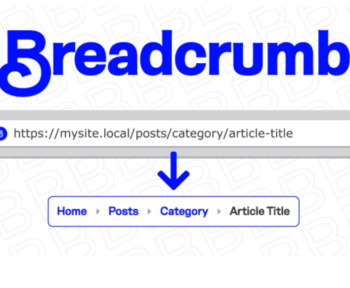Table of Contents
What Is Email Harvesting?
Email harvesting is the process of obtaining a large number of email addresses in a variety of ways. The purpose of collecting email addresses is to use a large amount of email or for spamming.
The most common method of email harvesting is to use a harvesting boat called Harvester or specialized harvesting software.
Spammers collect email addresses through a variety of methods, including:
- Post to Usenet with email addresses
- From mailing lists
- From web pages
- From various papers and web forms
- Identity by daemon
- From a web browser
- From Internet Relay Chat and Chat Rooms
- From domain contact points
- Using the assessment and cleaning method
- White and yellow pages
- By accessing the same computer used by legitimate users
- The email address from the previous owner
- By social engineering
- Purchasing listings from other spammers
- By accessing the email and address books on another user’s computer
- Hacking websites
The above technique allows spammers to collect email addresses and use them in conjunction with electronic messaging systems to send unwanted bulk messages. The following methods can be used to prevent email harvesting:
- Replace email address ******* “@” with “at” and “”. Changed to “dot”
- Converting an email address into an image
- Using the Email Contact Form
- Using JavaScript email opacity. In the source code viewed by the harvester, the email address appears to be scrambled, encoded, or obscure. Learn about DKIM
- Using confusing email addresses via HTML. For example, you can insert hidden elements inside addresses, make them look random, and use cascading style sheets to restore the correct order.
- Prompts users to enter a valid captcha before revealing their email address. Learn about cold emails.
- The use of CAN-SPAM notices leads to the prosecution of spammers under the CAN-SPAM Act 2003. The Website Administrator should post a notice stating that the Site or Service will not deliver, sell or transfer the address maintained by such Website or the Online Service.
- Mail server monitoring. This method can be implemented on the receiving email server. It rejects all email addresses from any sender who invalidate the addresses of more than one invalid recipient.
- Using Spider Web. This email is part of a website designed to combat harvesting spiders.
Is Email Harvesting Illegal?

At first, glance, scraping email addresses may seem like a quick way to create a list of contacts, but there are several reasons why this may not be a good idea. For starters, collecting emails in this way is illegal in many countries, including the United States. In fact, the CAN-SPAM Act of 2003 specifically prohibits this practice. Apart from being illegal, there are many other reasons to avoid email scraping. This type of email harvesting is bad for your business and is not an effective way to build loyal customers. For a free trial of the best email marketing tools click here.
There is a very good reason why professional marketers do not collect email addresses by scraping. Using technology to scrape email addresses from the web allows you to collect thousands of email addresses, but the quality and use of those addresses are questionable from the start. You may have thousands of email addresses in your database, but you do not have the consent of the email owners to receive the email. Email marketing depends on permission; You have nothing without that permission.
Email Harvesting Dangers
If you ignore the risks and choose to create an email list by scraping, you will face several significant risks. Some of these risks can damage the reputation of your business, while others can actually distance you from the business. Here are some serious risks associated with creating a list based on scraped email addresses:
- You may be flagged as a spammer by email clients and ISPs
- You may be suspended by your SMTP service. No professional SMTP service allows marketers to send unsolicited emails.
- Your bounce rate will increase exponentially.
Sending unsolicited emails can ruin your brand reputation
Your company may be fined by local authorities. Each country has different laws regarding unsolicited emails and there are different penalties for violating those laws.
No matter how exciting it is, creating your email address by scraping is always a bad idea. If you use scraped email addresses, you may be caught and you may be subject to heavy penalties by the CAN-SPAM Act and its international counterparts. Even if you somehow avoid being detected, the quality of the list you create this way is at best questionable.
Hope! you find this content informative. Don’t forget to share and leave comments.






9 Comments
Keenan
Incredible quest there. What happened after?
Thanks!
inamdurrani60
Thanks Keenan
Beulah
I’ve been exploring for a little bit for any high-quality articles or weblog posts
in this kind of area . Exploring in Yahoo I eventually stumbled upon this website.
Reading this information So i’m satisfied to convey that I have a
very good uncanny feeling I came upon exactly what I needed.
I so much indubitably will make certain to don?t forget this
website and give it a look on a constant basis.
inamdurrani60
Thanks, Beulah for Your appreciation stay blessed
Mitchell
Hi there, the whole thing is going nicely here and ofcourse
every one is sharing information, that’s truly good,
keep up writing.
inamdurrani60
Thanks Mitchell for your response
Going Here
You can definitely see your expertise within the work you write. The sector hopes for more passionate writers like you who are not afraid to mention how they believe. Always go after your heart.
inamdurrani60
Thanks Murzy for appreciating our work